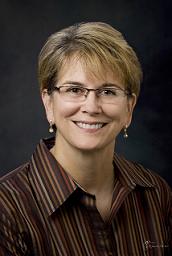 Barbara Bergin, MD, is a founding member of Texas Orthopedics, Sports and Rehabilitation Associates in Austin and fellow of the American Academy of Orthopaedic Surgeons. In addition to serving as an orthopedic surgeon, Dr. Bergin is the author of the award-winning novel, Endings. She discusses how she chose the field of orthopedics, working as a female orthopedic resident in the 1980s and the future of orthopedics.
Barbara Bergin, MD, is a founding member of Texas Orthopedics, Sports and Rehabilitation Associates in Austin and fellow of the American Academy of Orthopaedic Surgeons. In addition to serving as an orthopedic surgeon, Dr. Bergin is the author of the award-winning novel, Endings. She discusses how she chose the field of orthopedics, working as a female orthopedic resident in the 1980s and the future of orthopedics. Q: What attracted you to the field of orthopedics?
Dr. Barbara Bergin: I actually wanted to be a psychiatrist when I was in medical school, and I just happened to do a rotation in orthopedics. The orthopedic residents were cool and the orthopedic patients had different objectives than most other patients. I also found that I was good with my hands. I'm pretty left brained, and there is literally more art to orthopedic surgery, above and beyond the figurative "art of medicine."
Q: Have you had any mentors that have had a significant impact on your career?
BB: It was hard being a female orthopedic resident in early 1980s. There were very few of us. Dr. Raymond Bagg will always have my deepest gratitude. I hope he's playing golf in some beautiful place right now.
Q: How has orthopedics changed since you began to practice?
BB: When I started my residency, we were just beginning to do arthroscopy. In fact during my rotations as a medical student, one of the attendings had rigged up a home video camcorder with some sterile plastic bags. My job was to hold that thing on top of his shoulder so he could scope the knee. I would have to say that the biggest changes have been in the area of arthroscopy, and that well continues to yield.
Q: What changes do you see on the horizon for orthopedic surgery?
BB: I would have to say that my wishes and excitement would center on a treatment for obesity, rather than some technological advances. It's not glamorous, but I see obesity as one of the prime obstacles to improved overall health in this country, and I don't see "pushing away from the table" as a viable long-term solution. In orthopedics we are seeing younger and younger patients with advanced degenerative joint disease in their hips and knees. It is devastating and we have yet to see it played out to its fullest extent. We're only beginning to see the full effect of morbid obesity on our population. Wait another 10 years.
More Articles on Orthopedics:
8 Orthopedic Surgeons Treating Professional Athletes
Translating Passion for Spine to a Successful Practice: Q&A With Dr. Samuel Cho of Mount Sinai Medical Center
Dr. Pietro Tonino Conducts Study of 3-D System to Prevent Baseball Shoulder Injuries


